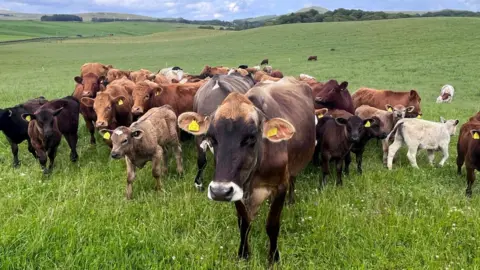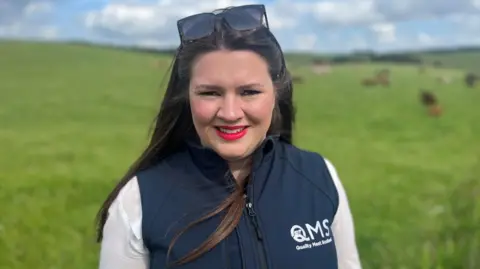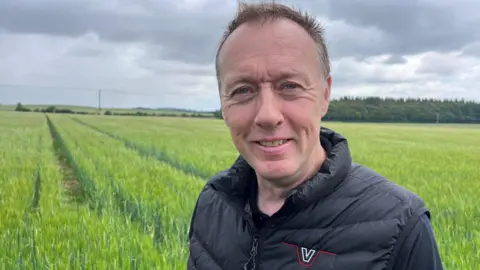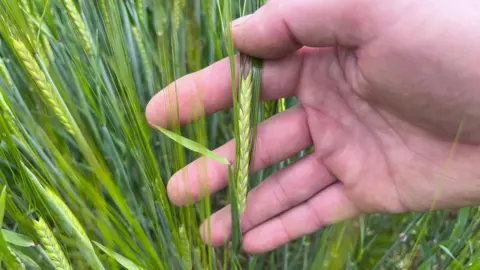Scottish farmers worried over imported trade deal meat
 BBC
BBCScotland's meat industry says it is becoming concerned about the "creepage" of imports from countries which have signed trade deals with the UK.
Quality Meat Scotland (QMS) says imports from countries like New Zealand, Australia and Brazil risk destabilising the Scottish food sector.
On the opening day of the Royal Highland Show at Ingliston, Edinburgh, farming unions insist trade deals are opening up new markets for many in the sector.
But QMS is urging politicians to consider the cumulative impact of multiple deals rather than treating each one in isolation.

It says low livestock numbers in the US, following successive droughts, mean there is a beef shortage from which Scottish exports could benefit.
However, a decline in Scottish cattle numbers would need to be reversed in order to meet demand from across the Atlantic.
Australia was the first country since Brexit to strike a trade agreement with the UK in 2021.
It came into effect in May 2023 and farmers accused the then Conservative UK government of "giving away our markets too cheaply".
Since then, trade agreements in principle have been struck with about 70 countries and last month the UK and EU reached a renewed deal.
The farming and food sectors have been considering what it means for imports and exports.
EU market 'most important'
QMS modelling predicts an extra 79,000 cows would be needed by 2030 to replace imports with home grown beef.
That equates to an extra two animals per herd each year although even more would be needed if exports were to grow.
Chief executive Sarah Millar told BBC Scotland News: "We're not afraid of trade, we want to position our markets out there on that premium global marketplace as well, so we welcome two-way trade.
"But it's got to be done in a fair and equitable basis.
"All of these trade deals, when they come together, could have a destabilising effect."
Other market places have been opening up as trade deals have been agreed.
The United Arab Emirates has been receiving imports of Scotch lamb since 2023.
But Ms Millar says the EU is still the most important export market and any agreements which can smooth access to European trade would be welcomed.

Last month's trade deal with India is being looked upon as having growth potential for Scotland's arable farmers.
The agreement has halved excise duty for whisky imports which has been welcomed by the Scotch Whisky Association.
It says the deal has the potential to increase exports to India by £1bn over the next five years and create 1,200 jobs in the UK.
Barley growers are hoping it will result in an increase in demand for the crop from Scottish maltings.
Neil White, an arable farmer near Duns in the Scottish borders, says he could almost double the amount of barley he grows.
He explained: "We're at the very beginning of that supply chain.
"I have only 25-30% of the farm growing spring barley so potentially this farm could grow a lot more if the premium was there.
"It's a relatively cheap crop to grow. It's also a local market and a prestige market."

There is growing optimism that the EU-UK trade and co-operation agreement will benefit farmers, and small food businesses in particular, by reducing red tape at the border and reopening trade routes.
The seed potato industry says the lost market opportunity into the EU has cost £75m over the last five years.
NFU Scotland welcomes the reset of relations but has concerns about the UK being aligned with the EU's rules without having a say on their formation.
Jonnie Hall, director of policy, says recovering lost markets is important but believes other trade opportunities are also available.
He said supplying premium beef products to the US would be good for farmers here.
But anything being sold into the UK must meet the same production and welfare standards as home produced food.
That means politicians sticking to the ban on controversial hormone-treated US beef.
He added: "We're all doing a bit of crystal ball gazing at the moment.
"We need to see the real detail to understand the implications."
